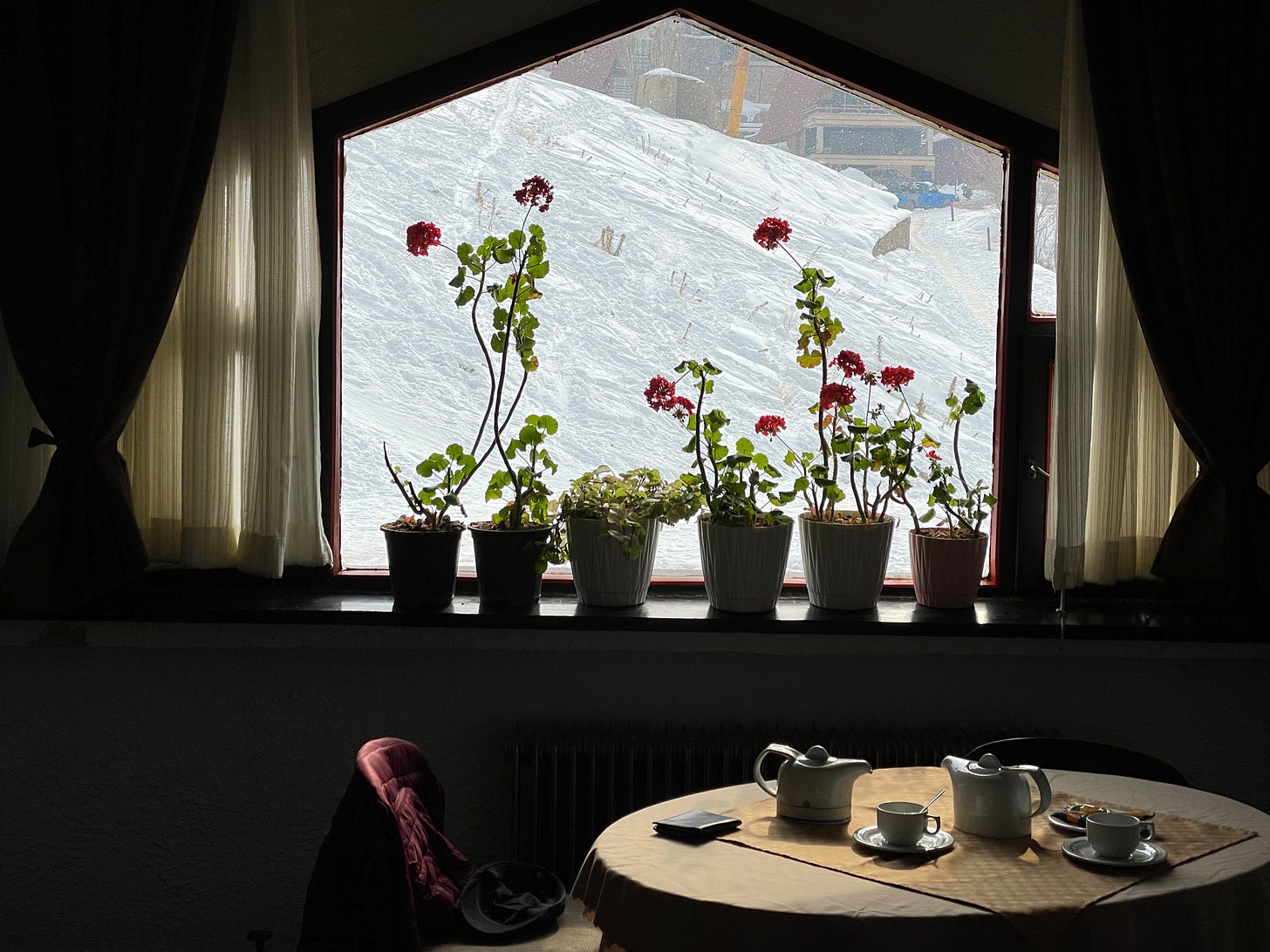Improvised Conversation
A reflection on listening, silence, and exploration
H, one of my clients, the CEO of a successful startup in Iran, called me.
H: Amir, I'm really tired and exhausted. I'm thinking about quitting. I need to talk.
Amir: When and where do you want to talk?
H: I prefer somewhere outside the office. Maybe outside the city.
Walk out to Walk on
In my experience when we want to talk about a challenge whether it's personal or professional, it would be a worthwhile idea to relocate and step outside the usual place, whether it's home or office. In such instances, changing the location can be a symbolic act of walking out to see what lies within.
I suggest reserving a room in a hotel in the northeast of Tehran with high snowy mountains. After a one-hour drive on a snowy road, we arrived at the hotel.
We don't just walk out to leave things behind but walk out to walk on. We leave to return. In return, we are regenerated and we can be whole. In return, we are reborn.
There is no destination
Our conversation started at 10:00 am and ended at 6:00 pm the next day. Obviously, I was more listener. This was not the kind of conversation that would solve any problems. There was no question about what we wanted to achieve at the end of our conversation. It was like roaming. The end was not clear, so we only had to focus on the present. It was a moment-by-moment discovery of emotions, thinking, and ideas. It was moving between sound and silence. There were times we were in silence for minutes. Sometimes, the silence between words means a lot. That kind of silence is the result of being heard or the result of facing a question. As silence prevails, another question usually surfaces, which usually leads to a breakthrough or turning point.
During the talk, we changed our location from inside the room to walking outside and watching the mountains.




Listen to our story again
These conversations are not about finding an exact solution to a well-defined question. It's more about hearing our story again. When we give voice to our thoughts, we hear our story again. While listening, I heard words that resonated in my head. I realized at that moment that his questions about his life were similar to mine about my life. As he was asking questions about his life, I noticed that those were the open questions for me. It was like someone else was giving voice to my stories. At the same time I was listening to him, I was hearing voices inside my head. These were moments of pause, even with a breath, to re-center myself. The time was not for me but when we are present to listen to another person we realize that we have shared stories. There are times when I feel like humans are one story with different words.
Listening is suspending disbelief. We are openly receiving. Paying attention with no preconceived ideas. The only goal is to fully and clearly understand what is being transmitted, remaining totally present with what's being expressed- and allowing it to be what it is. Many of us experience life as if we're taking it in through a pair of headphones. We strip away the full register. We hear information, but don't detect the subtler vibrations of feeling in the body. When you practice listening with the whole self, you expand the scope of your consciousness to include vast amounts of information otherwise missed, and discover more material to feed your art habit.
- Rick Rubin1
New questions are born out of existing ones
We were walking around the hotel and watching the mountains. H told me:
You know Amir! Problems are never solved. When you solve something it doesn't mean the file is closed. It opens up new subjects and problems.
I replied:
Maybe we can think like this so that there are no problems in life. Maybe problems are our minds' constructs. I mean things change. When we pay attention to something and try to solve it or whatever we do, they change. This is like life. Things are alive and are always evolving.
H replied:
Exactly. Things change. Situations are not constant. Everything is changing. This is the nature of life.
The topic of his call was exhaustion and quitting. At the end of our conversation, we had new questions. We came up with some fresh ideas about his company. Actually, he discovered new questions and novel ideas. At the end of the second day, he told me: "I feel calm now." It was really enjoyable for me. He returned home with new questions and ideas. Exhaustion changed into something else.
The Value of Improvised Conversation
There was a general theme or sense of H's exhaustion for both days, but the entire conversation was improvised. We didn't set any rules. We didn't time-box it. It was not about the coaching process. The conversation and the silence were happening at the moment and whatever we were talking about was the right thing. Even moments of silence seemed appropriate at the time. We shared our vulnerabilities sometimes. He talked about his fears, and I shared mine as well. For both of us, it was complete improvisation. Improvisation means trusting the moment and trusting ourselves. This means we are not expecting anything, don't try to control the future, and do not expect to be the best person. Expecting to be the best person evokes comparison of ourselves with others. It's not about being non-judgmental but about seeing and feeling judgments. The goal is not to be the most efficient or find the most suitable solution. It's about simply being who we are.
If you liked this post please like it and share your comments.
Rick Rubin / The Creative Act: A Way of Being p. 102





